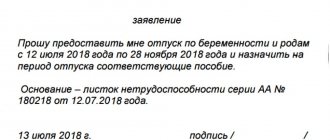Many enterprises in their practice are faced with a problem when they need to perform a certain amount of work, limited in time and frequency of execution. Typically, such transactions are one-time in nature. Hiring a specialist as a full-time employee on a permanent basis for a short period of time is impractical. It is expensive to enter into an agreement with a company that specializes in performing the required work. In such cases, many company managers or self-employed entrepreneurs hire a citizen as a performer, concluding a contract with him.
This document is a civil document regulating the labor relationship between an individual entrepreneur or legal enterprise with an individual for the performance of a certain type of service or any work. This form of relationship between employee and employer is today the most popular and least expensive.
Contract forms
The contract can be concluded in two forms:
- Oral form. When two individuals have agreed among themselves on the terms of a transaction, the amount of which does not exceed ten thousand rubles.
- Written form. If an agreement is concluded between legal entities and individuals and the transaction amount exceeds 10,000 rubles. It does not need to be notarized, which is confirmed by Article 161 of the Civil Code of the Russian Federation.
The distinctive features of such an agreement are:
- voluntary nature of the agreement;
- the contractor who was hired is not a full-time employee of the enterprise. No entry is made in his work book about the time of performance of services, i.e., the beginning and end of the period of labor activity. The organization does not issue or file orders for acceptance and dismissal from positions. The hours worked by the hired person are not included in the time sheet;
- the cost of work or services is not assessed according to the generally accepted wage scale for the enterprise, but is part of the contract and is prescribed for the full volume of services (work) performed, regardless of the time spent on the work;
- the mercenary is not subject to the general work schedule, can come and leave the workplace as needed and perform his part of the work at a time convenient for him. The main thing with this form of relationship is high-quality work delivered on time;
- the hired employee is not part of the workforce, but is obliged to comply with the rules of the organization and cannot violate the operating hours of the enterprise;
- a temporarily hired performer is deprived of all the benefits of full-time employees; he has no rights to paid leave, sick leave and other compensation payments and benefits provided by law.
Features of the contract for 2021
As managers of some firms try to avoid additional tax burden on employees' wages, the practice of concluding contract agreements instead of employment agreements has become common practice. But since 2021, everything has changed.
Previously, the difference between an employment agreement and a work contract was the qualitative approach to the form of payment for an employee and his registration for work.
According to the law, after the legal formalization of the relationship between an individual - an individual entrepreneur and a hired employee, the employer must, within a working week, from the moment the new employee begins working, register the signed document with the state employment service at the place of registration of the individual entrepreneur. Along with the contract, the service is presented with a passport or other document by which the identity of the hired employee can be established, his work record book, where the relevant entry is made to the employees of the state body, and in some cases a document indicating the level of qualifications of the new team member.
In rare cases, they are required to provide a military ID or registration certificate if the employee has not reached conscription age, educational documents, and a certificate of health, including from a psychiatrist or narcologist.
Such documents are required in cases where an employee is invited to secret or military service, as well as to institutions that provide services for working with children, caring for the sick, or to catering establishments. In other cases, a passport with registration is sufficient. If an agreement is concluded with a foreign citizen, then he is required to present migration documents with permission to work in Russia. Typically, the validity of such an agreement is limited to the end date recorded in the certificate of registration of place of residence.
An employment contract differs from a work contract in that it is subject to mandatory registration, while the latter can be agreed upon orally and does not have notarial confirmation. According to the employment contract, the employer must pay insurance contributions to the Pension Fund for the entire amount of accrued wages.
From 2021, under a contract, along with an employment contract, the wages of an employee must be subject to insurance contributions if the individual hired by the enterprise was:
- services provided (for example, a real estate agent, translator, security guard, home teacher, clothing or equipment repairman, and others);
- articles, books, or other materials have been written, while the mercenary is only the nominal author of the copyright;
- fulfills obligations to provide services or work specified in the contract.
The exception is payments under contract agreements drawn up for rental services, purchase or sale of real estate, loan agreements or loans. These are the cases when insurance premiums for cash payments to individuals are not charged.
Duration of the GPC agreement with an individual
Since we are talking about a civil contract (where the abbreviation GPC comes from), it is regulated by the Civil Code of the Russian Federation. And there is nothing specific said about how long such an agreement is concluded. It must be chosen by the parties, guided by:
- the internal logic of the contract itself;
- the time required to complete an order (production of a specific item, provision of a service, performance of work);
- the need to provide additional time due to external factors.
A striking example is the agreement between the publisher and the author. If a writer needs an average of 8 months to prepare a book, he can, taking into account the “reserve of time,” enter into such a contract for a year. In this case, the text of the agreement must describe in detail the subject of the agreement, often indicating the draft title of the work.
That is, the validity period of the GPC agreement is determined by the nature of the order made. The more complex it is, the longer it takes, for example, to look for consumables, complete a sketch, or work directly on the task at hand, the longer the agreement is drawn up for. But this time should be determined by the logic of the order itself. Otherwise, the inspection structures may have questions.
Methods for determining the validity period of a contract
The duration of the contract can be agreed upon in various ways, but in compliance with the rules established by Art. Art. 190, 191 Civil Code of the Russian Federation.
The period can be determined:
- an indication of the calendar date, if the parties know exactly the date of termination of the relationship (Article 190 of the Civil Code of the Russian Federation);
An example of a condition statement:
“This agreement is valid until December 31, 20__.”
- expiration of a period of time (Articles 190, 191 of the Civil Code of the Russian Federation);
An example of a condition statement:
“This agreement is valid for one year from the date of signing.”
- an indication of an event that must inevitably occur if the parties want to make the duration of the contract dependent on the occurrence of any event (paragraph 2 of Article 190 of the Civil Code of the Russian Federation).
If the validity period of the contract is not determined according to the rules of Art. Art. 190 – 194 Civil Code of the Russian Federation
In this case, the period is considered inconsistent, and the work contract will be valid until the parties properly fulfill their obligations under the contract, unless otherwise established by law (clause 3 of article 425, clause 1 of article 407, clause 1 of article 408 of the Civil Code of the Russian Federation ).
If it is indicated in the contract that it is valid until all mutual settlements between the parties are made, the validity period is recognized by the court as inconsistent due to the fact that only the customer carries out settlements under the work contract (clause 1 of Article 711 of the Civil Code of the Russian Federation), and the obligation of the parties to carry out mutual settlements is by agreement not provided.
It is important to know! Liability under a contract: compensation for losses, interest, penalties
More information about the contract with an individual
The definition of a contract agreement is given in the Civil Code of the Russian Federation (Article 702). It states that a contract with an individual is a document on the basis of which the citizen performs a certain service to the customer, subject to compliance with the stated deadlines and with a guarantee of results. The document stipulates the nuances of cooperation, as well as the consequences of failure to fulfill the assigned tasks.
Distinctive features of the agreement:
- Both parties have obligations towards each other, and their interaction is built on trust and honesty.
- The moment of registration is the agreement and display of conditions, as well as the presence of signatures. There is no need for any additional actions.
- Possibility of dividing the subject of the agreement.
- Receiving benefits for both parties. The contractor earns money, and the customer receives the result of work under the contract, performed on a contract basis by an individual.
Depending on the situation, the agreement can be drawn up in several versions. It lies in the construction, design, household, scientific or other sectors. When drawing up a contract, one party (the contractor) undertakes obligations to perform strictly specified work.
Duration of the contract
The duration of the contract is an essential condition that must be specified in the agreement. Without a clear indication of the start and end dates for the completion of work under the contract, it is not valid (with rare exceptions, which will be discussed below). This is due to the fact that a work contract is a special type of agreement in which the result of the transaction is achieved not immediately (as, for example, in a purchase and sale agreement), but over a certain period of time. Contracting relations are not a one-time act, but a process, and the customer is interested in having the work completed within the deadlines stated by him, and not “someday.”
[1]
If there were no deadlines for the completion of work in contract agreements, contractors would have the opportunity to build and repair until the end of time. This possibility theoretically arises if the contract does not specify the period of time during which the tasks set by the customer must be completed. Therefore, the absence of terms in the contract, as well as prices, is grounds for considering the contract not concluded. Consequently, legal relations arising from this type of agreement do not arise in such cases.
However, the deadlines for completing the work may be specified in an additional agreement between the parties. In this case, the contract is considered concluded.
An important nuance: in no case should you confuse the deadlines for completing work with the duration of the contract. Indication in the contract of its validity period is not identical to the indication of the period during which the tasks assigned to the contractor must be completed. The term of the agreement refers to the date of its entry into force and the end date of the agreement itself. Thus, the duration of the contract cannot be considered as an agreement on the period of performance of work.
What is a contract
A work contract (civil contract of civil law nature) is an agreement in which one party (contractor) undertakes to perform certain work on the instructions of the other party (customer) and deliver its result to the customer, and the latter undertakes to accept the result of the work and pay for it (Art. 702 of the Civil Code of the Russian Federation).

The work contract is considered one of the oldest civil law contracts. It was already known to Roman law, which defined it as hiring work and was divided into three types - hiring of things, contracting, hiring of services.
After the revolution in Soviet legislation, contracting was identified as a separate contractual type. According to the Civil Code of 1922, under a contract, one party (contractor) undertakes, at his own risk, to perform certain work on the instructions of the other party (customer), and the latter undertakes to provide remuneration for completing the task. The Civil Code of 1964 defined a contract as an agreement under which the contractor undertakes to perform, at his own risk, certain work on the instructions of the customer from his or his own materials, and the customer undertakes to accept and pay for the work performed (Article 350).
The Civil Code of the Russian Federation of 1994 identifies the types of construction contracts (Chapter 37):
- domestic;
- construction contract;
- contract for design and survey work;
- contract work for government needs.
A contract with an individual can be used in cases of one-time work. Examples: legal services, office renovation, fence painting, etc.
Legal aspects
A distinctive feature of standard agreements classified as civil law is that relationships are regulated, regardless of the status of the participants, by the Civil Code instead of the Labor Code. In accordance with Article 702 of the Civil Code of the Russian Federation, a contract is a legal relationship obliging one party, called the contractor, to perform work for the other party, called the customer, with delivery within a specified time.
Work under a contract is regulated by Articles 740-757 of the Civil Code of the Russian Federation and is divided into the following types:
- household contracting - production of material goods to meet household needs;
- construction contract – new construction, repair or reconstruction of fixed assets, including installation and other related additional work;
- contract for design and survey work - preparation of design documentation, estimates for construction and reconstruction of fixed assets.
What is a work contract in essence and how does it differ from other legal relations of a civil law nature? A distinctive feature is the material form of the custom-made object, the ability to connect third parties, called subcontractors. Delivery of the finished object is carried out on the basis of a signed certificate of completion, according to which the contractor transfers the work to the customer, who undertakes to make payment in accordance with the conditions.
Arbitrage practice
In matters of contractual cooperation, it is possible to move to the judicial level when one or both parties are dissatisfied with the failure to fulfill obligations. Let's highlight several cases:
- The company entered into a contract with an individual to clean the area twice a month. The reason for the complaint was a referral for a medical examination. The judicial authority ordered the employer to make an entry in the work book without the employee visiting medical specialists due to minor harm.
- In the Volga-Vyatka District, the judicial authority refused to collect the debt due to the fact that the acceptance certificates were signed by an unauthorized organization. No other facts about the execution of work under the agreement were provided.
- The customer filed a claim against an individual demanding to cover the costs of correcting defects during the construction of the cafe. Experts had to fix the defects without involving a contractor. The court indicated that any violations must be recorded in the act. The customer, in turn, did not inform the contractor about the problems, so the fact of defects and the cost of correcting them are not supported by anything. Consequently, the court rejected the claim.
In judicial practice, there are many disputes that relate to timing, quality and taxes under a contract with an individual. In all cases, the situation is considered individually. The main information is gleaned from documents - acts, agreements and other papers that are drawn up between the parties during cooperation.
How to draw up a contract with an individual
We recommend taking into account the following points in the contract agreement (form):
- Start and end date of work;
- The procedure for payment for work performed;
- List of works or services to be performed (it is necessary to determine the content, volume and result of the work performed by the contractor);
- Requirements for the quality of work performed (requirements that the contractor will be required to comply with);
- Warranty period (the period during which the contractor undertakes to ensure that the quality of the work result complies with the terms of the contract and is responsible to the customer for identified deficiencies in the work result);
- The procedure for acceptance and delivery of work;
- Responsibility of the parties;
- Contract time.
After completing the work, a certificate of completion of work is drawn up on the basis of a contract. The act is signed by an individual and a manager. The act indicates the amount of remuneration. This agreement frees the organization from the obligation to pay for work every six months; payment occurs only within the terms specified in the agreement. For violation of payment terms for work or services, the customer is liable in the form of interest, based on the refinancing rate of the Central Bank of the Russian Federation (Article 395 of the Civil Code of the Russian Federation). When concluding a contract, we recommend specifying the duration and type of work to be performed, and the price of the contract. In this case, the price may consist of two parts: remuneration for the contractor’s work and compensation for his costs (Article 709 of the Civil Code of the Russian Federation). All this is important so that the tax inspectorate does not consider the contract to be a labor contract.
Contents of the contract
The contract agreement form is freely available and can be downloaded on the Internet or purchased at specialized kiosks. It is standard, but any changes can be made to it. The contract must stipulate:
- name of the organization and personal data of the citizen who entered into this document;
- the essence of the work or services for which the hired person will receive payment, it is advisable to describe the terms of cooperation in as much detail as possible in the agreement in order to avoid discrepancies and litigation;
- payment for services or work performed, indicating the exact date of payment or attaching a payment schedule. If an individual is hired for a long term, then the document must reflect the frequency of payments (every day, weekly payment, monthly or any other conditions);
- responsibilities of the parties (time of visit, presence/absence of a pass in case of work at a sensitive facility, use of materials and tools, clear indication of who pays for what materials, and others);
- a mandatory item indicates whether this document will be certified by a notary;
- personal aspects are prescribed (for example, conditions of non-disclosure of secrets and compliance with confidentiality rules);
- circumstances of force majeure due to which the contract may be declared invalid are indicated;
- upon expiration of the contract and completion of work (services), a certificate of completion of work signed by the customer and the executive must be attached to it.
The contract is of an exclusively one-time nature. If an enterprise regularly enters into such agreements with the same individual, then the fiscal authorities can reclassify it as an employment agreement and punish the company that ordered the services (works) for trying to evade payroll taxation.
Contributions under contract agreements
Since 2021, the legislation has been amended, and now all payments under work contracts must be subject to insurance contributions to the following organizations with the interest rate indicated in brackets:
- Pension Fund (22% of the total contract amount);
- Federal Compulsory Medical Insurance Fund (5.1% of the total amount);
- Social Insurance Fund. Charges for payment are made only when this procedure is reflected in the agreement, and the company - the customer of services (works) - undertakes obligations to financially support these payments. In other cases, contributions are not charged. This distinguishes employment agreements from work contracts. And these innovations have been introduced since 2021. According to the employment agreement, a contribution is charged for temporary disability, childbearing and parental leave in the amount of 2.9% of the accruals.
Thus, from 2021, a party concluding a contract instead of an employment agreement can save exclusively on contributions to the Social Insurance Fund. In 2021, government officials closed the loophole for exemption from paying contributions to the Pension Fund and paying for insurance claims.
Payment under the contract
The payment procedure is negotiated individually.
As already noted, the price must be determined, and determined as specifically as possible. It must be indicated in a fixed amount or a procedure for determining it must be established. The contract price must include the following elements:
- compensation of contractor costs;
- contractor's remuneration.
The contractor's costs are compensated for such as the cost of purchasing construction materials, wages of workers and related workers, and other costs, for example, electricity. If their compensation is not included in a separate item in the price structure, it is necessary to clarify how and on the basis of what documents compensation of these costs occurs.
Value added tax must also be reflected in the price line. It should be clear from the price formula whether it is paid, and if so, whether it is included in the full amount of the price or whether it is paid in addition to it, which should be indicated in the calculation formula.
The price may follow from the estimated cost of each type of work according to the tariff directory. Payment under a work contract, as a rule, is made in stages, either in the form of paying first an advance and then the main amount, or after agreeing and signing an acceptance certificate for one of the stages of work.
Signing the act is a prerequisite; without it, payment under the agreement may be challenged by the tax authorities.
If a newly created object is transferred to the customer, then an act of acceptance and transfer of property must also be signed.
Disputes about payment under a work contract quite often arise in situations where the customer does not sign the work acceptance certificates and does not pay for them. Such disputes may result in a requirement to correct defects or reduce the price.
View from different sides
There are 2 parties to the contract: the customer and the contractor . They can be both individuals and legal entities, as well as individual entrepreneurs (in any combination of each other).
The law does not prohibit the involvement of additional performers - subcontractors . Then the first contractor will act as a general contractor, responsible to the customer, while the subcontractors are already responsible to him. If the subject of the contract is divisible, each subcontractor is responsible for its share. In case of indivisibility, the liability of subcontractors is joint and several.
REFERENCE! The relationship between the general contractor and subcontractors is regulated by a separate document - a subcontract agreement.
Advantages and possible risks for the customer
The main risk for the customer is that the Federal Tax Service very often interprets such contracts as hidden employment, so they study them in detail. Recognition of this agreement as a labor agreement contrary to the provisions of Art. 15 of the Labor Code of the Russian Federation entails penalties provided for in Art. 5.27 of the Administrative Code, namely:
- a fine on officials of organizations in the amount of 10,000 to 20,000 rubles;
- fine for individual entrepreneurs in the range from 5,000 to 10,000 rubles;
- for legal entities, the sanction ranges from 50,000 to 100,000 rubles.
At the same time, we can highlight some positive aspects for the customer:
- there is no need to pay sick leave and vacation pay;
- there is no need to pay a fee to the Social Insurance Fund;
- free form of contract conclusion.
A contract with an individual is concluded on a general basis and has its pros and cons. Before drawing up and signing a contract, you need to weigh all the pros and cons.
Did you like the article? Share with friends:
Manual for drawing up a work acceptance certificate
Clause 1 of Article 720 of the Civil Code states that inspection of the work result and its acceptance must be carried out by the customer in the presence of the contractor, and at the same time they sign the corresponding act. In order for the procedure to go smoothly, you need to pay attention to the proper preparation of the document. We provide step-by-step instructions.
- Name . The document is called “Work Acceptance Certificate”, then you need to indicate which ones, and also provide the details of the relevant contract.
- Date of preparation . It may differ from the final date for completion of work specified in the contract. It is better to agree on the date of acceptance and transfer in the text of the contract separately.
- Details of the parties . Names and details of legal entities, full names of individuals.
- Job information . Information about the type, volume and timing of the contract.
- Calculations . Indication of the amount of monetary or other measure of payment to the contractor.
- Signatures . Persons who completed the act of acceptance and transfer of work or authorized to do so by the customer and contractor, indicating their positions, surnames and initials.
- Seal . It is not provided for by law, but is a business custom; moreover, it contains the customer’s details.
IMPORTANT! If the act does not contain at least one of the listed points, it may be declared invalid.
Initial, final and intermediate deadlines for fulfilling a contract order
In the contract, according to clause 1 of Art. 708 of the Civil Code of the Russian Federation, both the initial and final deadlines for completing the work must be recorded. This is a prerequisite for concluding a contract. But the contract may also indicate intermediate deadlines. This is due to the fact that contract work can be carried out over a long period, and the volume of tasks performed can be very large.
Indication of intermediate deadlines, that is, the time for completion of individual stages of work, is not a prerequisite for concluding contract agreements. But if they are fixed in the agreement, they become binding.







